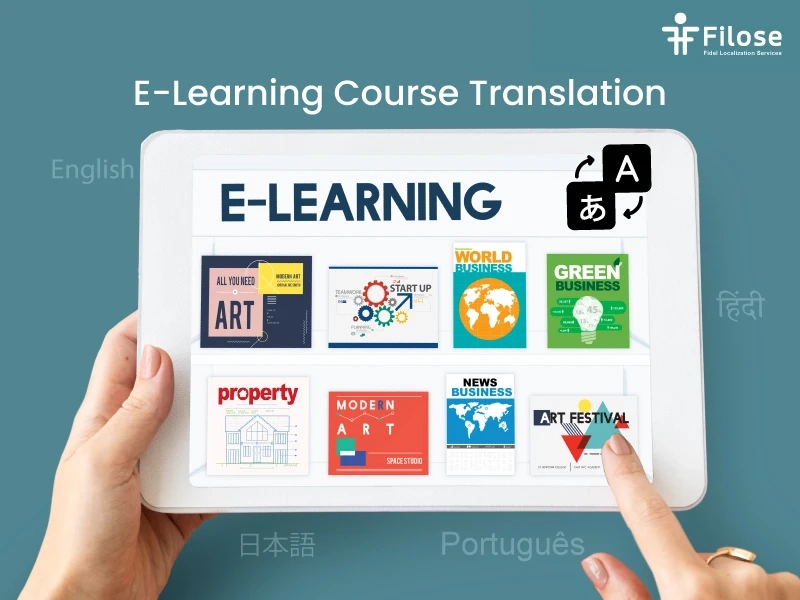In the digital age, education has transcended traditional boundaries, reaching learners across the globe through the power of e-learning. As the demand for online education continues to surge, the need for effective communication and understanding among diverse linguistic and cultural audiences becomes paramount. This is where E-Learning Course Translation and Localization Services play a crucial role.
What Is E-Learning Course Translation:
E-Learning Course Translation involves the adaptation of educational content from one language to another, ensuring that the integrity, clarity, and cultural nuances of the original material are preserved. This process goes beyond mere language conversion; it aims to create a seamless learning experience for individuals whose primary language may differ from the course content.
Key Benefits of E-Learning Course Translation:
Global Reach: E-learning course Translation breaks down language barriers, enabling educational institutions and businesses to extend their reach to a broader, more diverse audience. This facilitates the democratization of knowledge, making education accessible to individuals around the world.
Enhanced Learning Experience: Localization services go beyond translation, taking into account cultural differences, idioms, and regional nuances. This ensures that learners can fully comprehend and engage with the content, leading to a more effective and enjoyable learning experience.
Compliance with Regulations: In some regions, there may be specific regulations or standards regarding the language in which educational content should be presented. E-Learning Course Translation ensures compliance with these regulations, avoiding potential legal issues and ensuring a smooth educational process.
Increased Engagement and Retention: Studies have shown that learners are more likely to engage with and retain information presented in their native language. E-Learning Course Translation contributes to higher levels of engagement, leading to improved knowledge retention and application.
Understanding E-Learning Course Localization:
While E-Learning Course Translation focuses on converting content from one language to another, Localization takes the adaptation process a step further by considering cultural, social, and regional differences. It involves tailoring the content to suit the specific needs and preferences of the target audience.
Key Benefits of E-Learning Course Localization:
Cultural Sensitivity: Localization ensures that the educational content respects and aligns with the cultural norms and sensitivities of the target audience. This includes adjusting images, examples, and scenarios to be culturally relevant, making the learning experience more relatable and engaging.
Adaptation to Learning Styles: Different cultures may have distinct learning preferences and styles. Localization services customize the course content to cater to these preferences, increasing the effectiveness of the educational material for diverse audiences.
User Interface Adaptation: Beyond course content, localization involves adapting the user interface, such as navigation buttons, menus, and instructions, to suit the language and layout preferences of the target audience. This creates a user-friendly and intuitive learning environment.
Local Regulations and Standards: Localization ensures that the course complies with local regulations and standards, not only in terms of language but also in terms of content appropriateness and educational requirements.
Conclusion:
In the era of globalized education, E-Learning Course Translation and Localization Services play a pivotal role in breaking down barriers and fostering a truly inclusive learning environment. By embracing these services, educational institutions and businesses can enhance their impact, empower learners worldwide, and contribute to the advancement of knowledge on a global scale.



